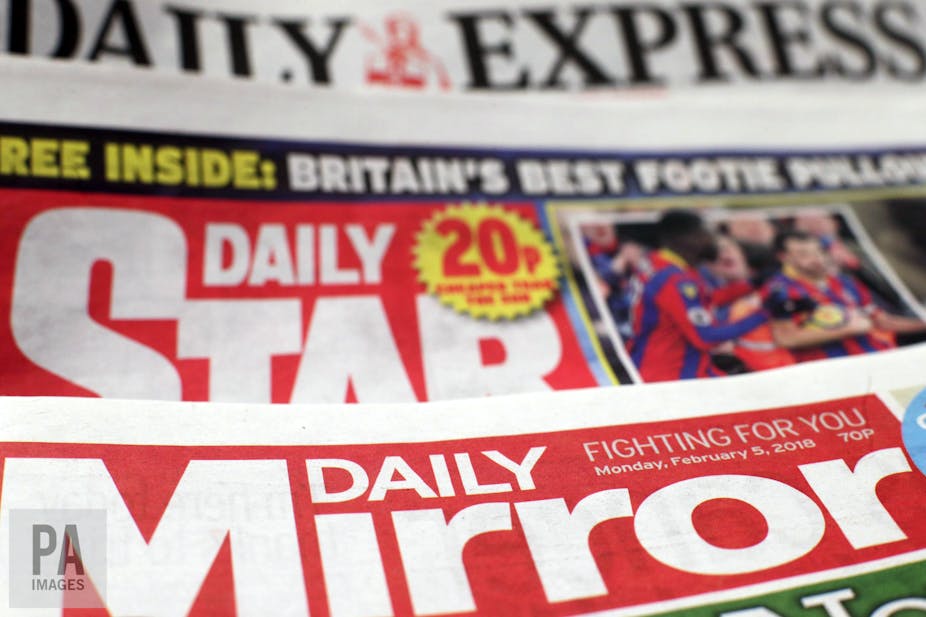The Daily Express and the Daily Mirror are almost the same age. Among the UK’s first national, daily, popular newspapers, they both came into being as a direct response to the success of the Daily Mail. The Express was launched as a direct competitor in 1900, while the Mirror was set up as a “woman’s paper” by the Mail’s proprietor Alfred Harmsworth.
By the middle of the 20th century, they were Britain’s most successful ever newspapers. Selling millions of copies, they were considered integral parts of British culture, informing and entertaining huge numbers of lower-middle and working-class readers. Together they marked the commercial and cultural high point of the “tabloid century”, when popular newspapers were a powerful force in British life.
Now, with the Mirror Group confirming its purchase of the Express (along with the other parts of Richard Desmond’s publishing portfolio) the two papers have considerably different reputations.
The Mirror, for example, is still suffering from the fall-out of the phone-hacking scandal. Editors and executives continue to be accused of allowing journalistic behaviour that repeatedly crossed legal and moral boundaries.
The Express, meanwhile, is now commonly associated with hard-line editorial stances against immigration and the recent refugee crises in Europe and North Africa. It has been accused (including by the UN’s Human Rights High Commissioner) of publishing hate speech.
Even united under the same publisher, it is extremely unlikely that either of these papers will reclaim the popularity, power and respect they once enjoyed.
This consolidation of ownership of two of the country’s most-read print newspapers has raised questions of editorial influence. Will the Mirror publisher try to move the staunchly right-wing Express leftwards? Such fears (flatly denied by Trinity Mirror’s CEO) are indicative of wider attitudes towards the tabloid media which assume their content is dictated entirely from the top.
But while newspaper owners such as Rupert Murdoch and editors such as Paul Dacre direct the content of their newspapers, they are also conscious of the necessity of a strong relationship with their readers. Any move to change the Express’s politics would be to ignore the interests (and loyalty) of the hundreds of thousands of people who continue to buy and read them. It is unlikely that this merger will lead to a radical change in the politics of the British press.
What is more likely – and more disheartening – is a reduction in the number of journalists. While key writers – particularly distinct political commentators – are likely to be kept at both papers, reporting teams will probably merge – and staff will be cut.
Deadline approaches…
While Trinity Mirror’s push for cutting costs is understandable in a press environment of declining advertising revenue and print circulations, to see staff cuts across two of the country’s biggest and most historic titles would be a disappointment.
As students continue to study journalism, the sight of further job restrictions on the horizon – particularly from two big name publications – will no doubt dent morale.

Once they were two of the earliest pioneers of tabloid journalism, and found huge success in speaking to large audiences better than any generation of British newspaper before it. At their peaks, they were the dominant forces in the business, with millions of readers enjoying their papers every single day.
Today these two former titans feel more like weary former foes reunited at the end of a long fight. They have joined forces to try and prolong their existence in a media landscape far flung from their past glories. And it may well help them to continue for longer than either would alone.
The fact remains, however, that this merger was unthinkable until only very recently. Just as their birth marked the beginning of print tabloid dominance, their union, propping each other up for the sake of survival, may well be seen in future as a marker of the tabloid newspaper’s demise.

